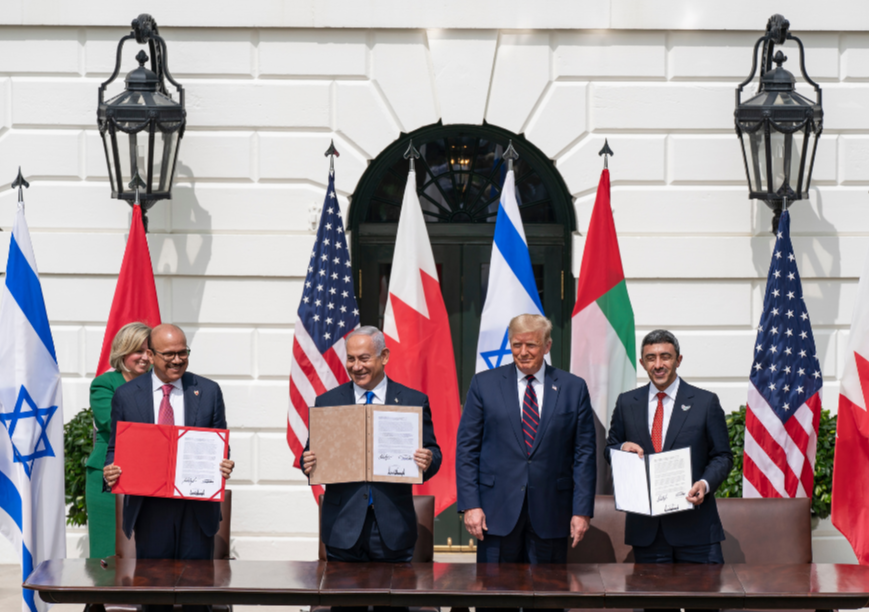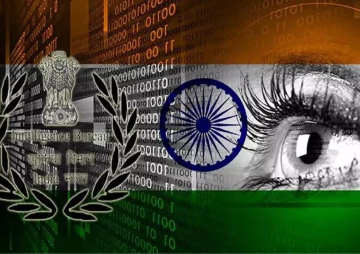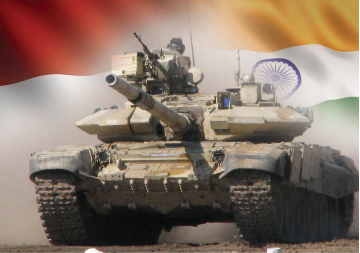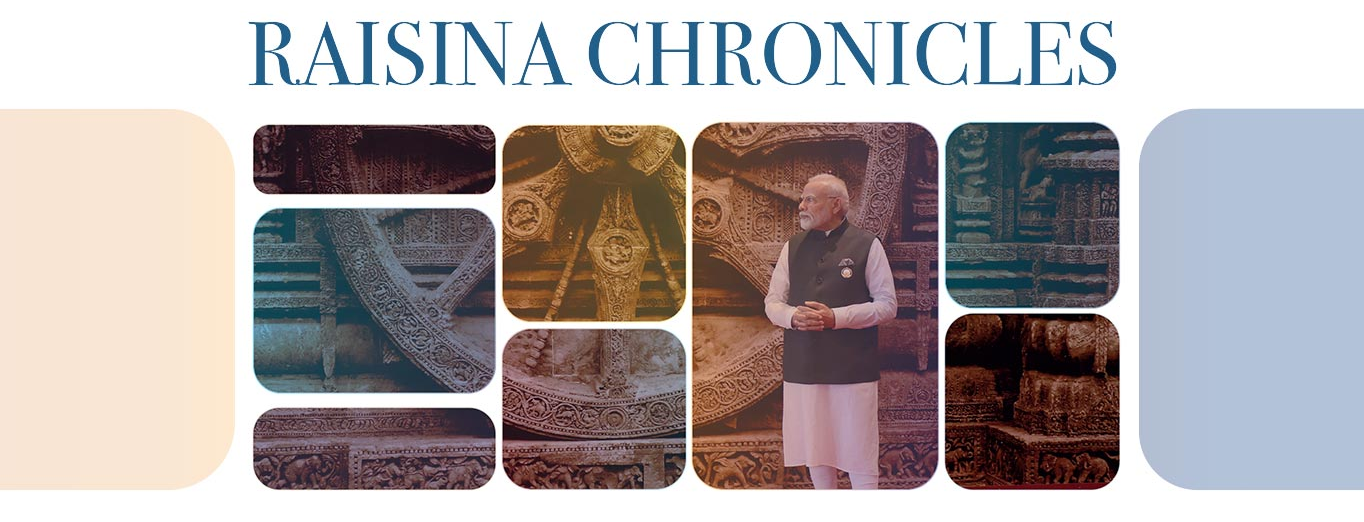
This article is a part of the series - Raisina Chronicles 2024
The Middle East finds itself in an unexpected grey area. The tragic shadow of the ongoing Israel-Gaza war, long as it is, has not eclipsed the Abraham Accords and the other minilateral formats in the Middle East. These United States (US)- brokered agreements and formats continue to represent solid avenues for expanded regional cooperation and economic ties. Furthermore, minilateral formats such as the I2U2—consisting of Israel, India, the US, and the United Arab Emirates (UAE)—the India-Middle East-Europe Corridor (IMEC), and the Negev Forum—comprising Israel, Egypt, Morocco, Bahrain, the US, and UAE—have demonstrated resilience throughout the present crisis, potentially mitigating the disintegration of the region during the intense Israeli military campaign and its devastating civilian toll. From the Houthi’s escalating attacks in the Red Sea to the targeting of US assets in Iraq and Jordan, and the renewed skirmishes between Israel and Hezbollah, a chilling message echoes across regional capitals: Iran’s transregional power grab poses not only an existential threat to governments, but also a critical roadblock to any ambitious dreams of Middle Eastern integration. Furthermore, the Israel-Gaza war underscores the need for a regional framework that can build both long-term security and provide a political horizon for Palestinians, mitigating the likelihood of further regional violence or regional disintegration.
Egypt has undertaken a delicate balancing act in the aftermath of the Gaza conflict. While upholding its strong security and intelligence ties with Israel, Cairo has expressed solidarity with the Palestinian people and resisted Israel’s attempts to expel Palestinians into the Sinai Peninsula. Echoing Egypt’s historical focus on maintaining internal stability, President Abdel Fattah El-Sisi’s strategy prioritises shielding Cairo from regional conflict—an approach deeply rooted in the country’s long-standing security doctrine. Despite the ongoing war in Gaza and regional escalation, Saudi Arabia has indicated its willingness to normalise relations with Israel. In a recent interview with the BBC, the Kingdom’s ambassador to the United Kingdom acknowledged “a clear interest” in pursuing diplomatic ties with Israel. However, the path to normalisation has narrowed in the wake of the Gaza war, with Saudi Arabia now insisting on a viable Palestinian political solution as a precondition. This is a position that also reflects the post-war strategy of US President Joe Biden’s administration. “The strategy post-October 7 is that we want to see normalization [between Israel and Saudi Arabia] tied to a political horizon for the Palestinians,” White House National Security Advisor Jake Sullivan said at the World Economic Forum.
Egypt has undertaken a delicate balancing act in the aftermath of the Gaza conflict. While upholding its strong security and intelligence ties with Israel, Cairo has expressed solidarity with the Palestinian people and resisted Israel’s attempts to expel Palestinians into the Sinai Peninsula.
The other Gulf monarchies that have signed the Abraham Accords—the UAE and Bahrain—demonstrated their commitment to maintaining ties with Israel in the face of Iran’s regional ambitions. Türkiye, under President Recep Tayyip Erdoğan, has maintained a more critical stance towards Israel. Erdoğan has denounced Israel’s military campaign in Gaza; however, Türkiye’s rhetoric has not been aligned with its actions as the country continues to allow the transport of oil shipments to Israel. Hezbollah, a major Iranian proxy and one of Israel’s fiercest opponents, has walked a tightrope amidst the recent Israel-Gaza conflict. Though distancing itself from Hamas’s decision to launch the 7 October attacks on Israel, it has maintained its signature low-level skirmishes along the Lebanese-Israel border. This calibrated display of force serves to appease its domestic power base without provoking an all-out war with Israel, a scenario that could devastate Lebanon’s already reeling economy.
The other Gulf monarchies that have signed the Abraham Accords—the UAE and Bahrain—demonstrated their commitment to maintaining ties with Israel in the face of Iran’s regional ambitions.
This cycle of conflict has not only underscored the regional implications of Iran’s increasing power and influence, but has also demonstrated its capacity to project this influence across various domains simultaneously. This development significantly affects both regional and global dynamics. Iran’s mastery in orchestrating multifront escalations through its proxies, ranging from targeting US forces in Iraq and Jordan to disrupting global shipping in the Red Sea, has raised widespread concerns among regional capitals on their own security, economic development, and prospects for regional integration. Even before the Gaza war, Gulf states recognised the threat posed by Tehran’s regional threats and have sought to contain its influence by pursuing strategic alliances and rapprochement with Israel. This strategy remains prevalent today, even in the face of the escalating humanitarian crisis in Gaza and the rising Palestinian civilian toll. The deep-seated apprehension regarding Iran’s expanding influence provides a strong rationale for the Abraham Accords and minilateral forums such as I2U2, the Negev Forum, and IMEC. Meanwhile, these efforts unfold against the backdrop of widespread Arab public frustration due to the ongoing crisis in Gaza.
This cycle of conflict has not only underscored the regional implications of Iran’s increasing power and influence, but has also demonstrated its capacity to project this influence across various domains simultaneously.
However, the renewed Israeli-Palestinian conflict serves as a stark reminder: Lasting peace and security in the Middle East requires a sustainable solution to this historical issue—or, at least, a political horizon for the Palestinian people that can give them their deserved rights and help prevent further escalation and preserves a bare minimum level of regional stability. In demonstrating just how far it is willing to go to force the Palestinian issue to remain on the table, Hamas is challenging regional and global powers to reconsider their priorities. Minilateral formats that include Israel, such as the I2U2 and IMEC, have remained mainly cohesive because the Palestinian issue has not been a central topic of concern. But these two paths, one towards greater regional integration and one towards a viable solution to the Israeli-Palestinian conflict, may not be mutually exclusive. Instead, the past several years of improved Arab-Israeli cooperation under the Abraham Accords have offered a taste of the formidable security and economic benefits that result from regional integration. A desire to continue enjoying these benefits may lend necessary momentum for key actors to pursue a pathway for sustainable peace.
These prevailing crisis points and India’s growing voice in world affairs has made the Raisina Dialogue a critical pathway for conflicting parties to utilise. Not many global capitals have the diplomatic pull to host Israel, Iran, the Palestinians, and the Arab states under one roof to debate the most contentious regional and global issues. And Raisina, propelled by India’s growing voice in global geopolitics, has done this consistently for nearly a decade. As we enter 2024, Raisina once again offers the opportunity to mobilise open-door debates, displaying goodwill and genuine intention for dialogue.
At this juncture, the Middle East may not choose, or perhaps even be allowed to choose, between old discord and the Abraham Accords. Instead, the region’s future might lie in the nebulous terrain between the two. On one hand, the scars of past conflicts and the enduring Palestinian question leave little room for complete trust and full regional integration. On the other hand, the burgeoning security and economic ties fostered by formats like the Abraham Accords, I2U2, and IMEC offer a glimpse of a more prosperous and stable future. The path forward will likely be one of constant negotiation, incremental progress, and shrewd navigation of the volatile currents of regional power dynamics and great power competition.
Please read the full volume here.
The views expressed above belong to the author(s). ORF research and analyses now available on Telegram! Click here to access our curated content — blogs, longforms and interviews.




 PREV
PREV



